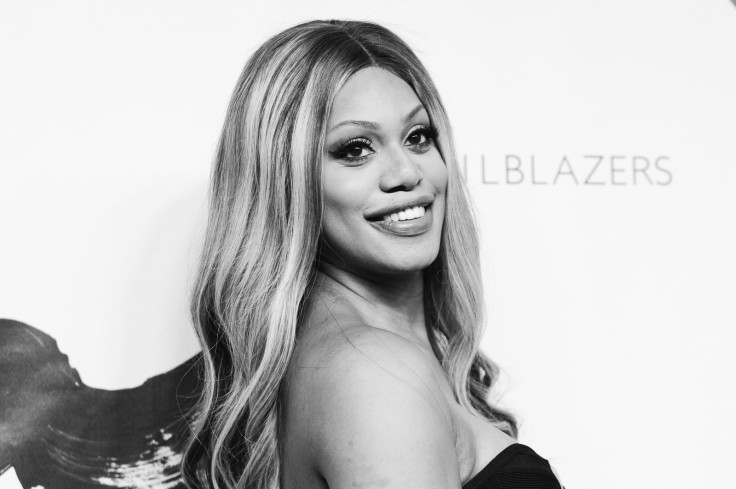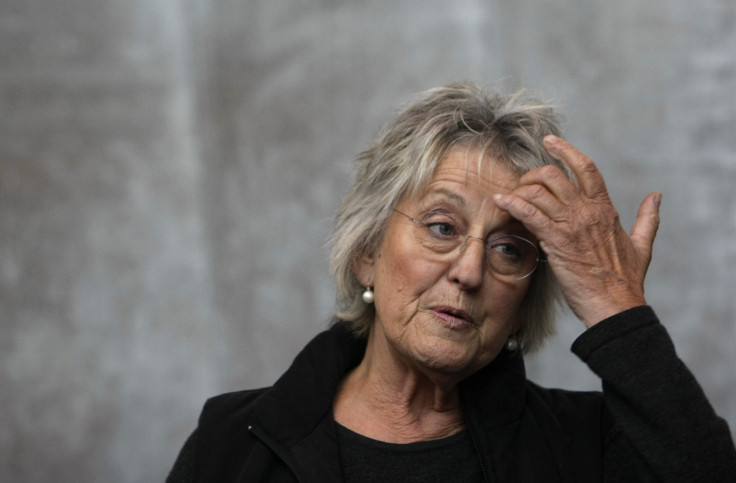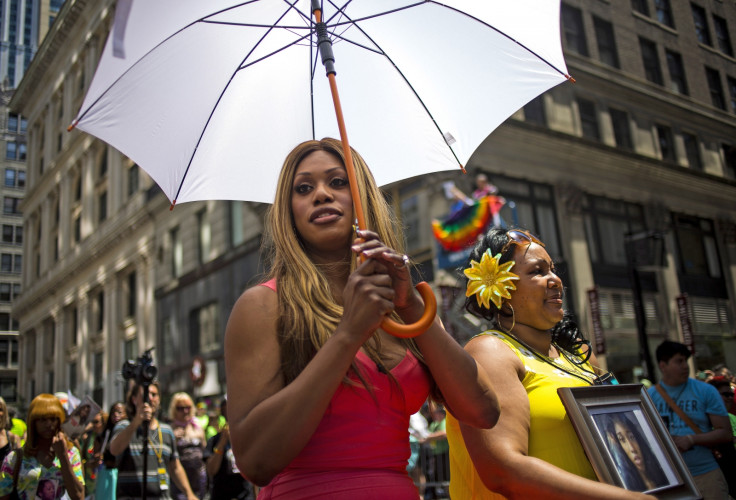Transgender rights versus feminism: What makes a woman?

Kat Haché, from Tennessee, is a transgender woman and an advocate of women's rights – two identities which some radical feminists believe are mutually exclusive.
"In the past, I have had some people tweet at me," she says. "I normally don't take them too seriously and have mostly ignored them, but I have heard horror stories of doxing [hackers revealing personal contact information online] and coercive outing of people as trans."
For the most part, Haché says, feminists see transgender women's rights as a natural extension of feminism. Yet at a time when trans rights are on the rise, a number of radical feminists insist on regarding trans women as men, denying them basic access to health care, women's facilities and anywhere considered a women's space.
During the second wave of feminism in the 1970s, leading voices rejected the inclusion of transgender women in feminism. Gloria Steinem, Janice Raymond and Sheila Jeffreys have all expressed exclusionary opinions, although Steinem recently apologised.
Trans women are not women because they do not know what it is like to have a "smelly vagina".
In the early 1990s, the third wave of feminism began to chip away at the bedrock of the second wave, introducing a new focus on queer theory, abolishing gender role expectations and replacing the one-size-fits-all theorising and dogmatism with inclusivity for different races, classes and genders.
Some feminists, however, have maintained an anti-trans stance. In The Whole Woman, Germaine Greer compares trans women to rapists: "When he forces his way into the few private spaces woman may enjoy and shouts down their objections, and bombards the women who will not accept him with hate mail, he does as rapists have always done."
Earlier this year, Greer claimed there was no such thing as transphobia, suggesting trans women are not women because they do not know what it is like to have a "smelly vagina".

The thought process behind this idea is based on female subordination. By asking to be accepted as women – because trans women feel female – critics say they are exploiting another form of female entitlement. Even if they choose to live as a woman and therefore accept an inferior social position, the element of choice means she will never be a "real woman". Yet for the majority of trans women, subordination, discrimination and abuse is rife.
A report in 2014 found transphobic hate crimes are on the rise in the UK. In 2014, the Metropolitan Police – the largest force in the UK – recorded a 44% rise in offences ranging from harassment to grievous bodily harm (GBH). But as is the case with all crimes against women, underreporting means this is likely to be a tiny fraction of the true number.
"A third of trans people in the UK go through transphobic abuse every year," says Serge Nicholson, from the charity Galop, which supports lesbian, gay, bisexual and transgender people. "That's the second highest of any EU country."
Although feminism is far from achieving all its goals, women have, generally speaking, won far more formal legal equality than the transgender community. Whether or not these rights are upheld is another matter. The Gender Recognition Act, which allowed transgender people to change their legal gender, only came into force 15 years ago. And hidden away in the Equalities Act 2010 is the provision that gender reassignment discrimination is acceptable in certain single-sex services, if it is justified.
"A group counselling session is provided for female victims of sexual assault," the example given in the accompanying notes, reads. "The organisers do not allow transsexual people to attend as they judge that the clients who attend the group session are unlikely to do so if a male-to-female transsexual person was also there. This would be lawful."
The problem is mirrored across the Atlantic. In the US, all jurisdictions recognise the two biological sexes of male and female and grant certain rights based on those sexes, which raises many legal issues for transgender people in legal identification and marriage.

But, if anything, the formal progressions have sprinted ahead of social consciousness on the issue of trans women's rights – as evidenced by the number of transphobic attacks. In January and February, seven transgender women were murdered in the US. In the UK, Vanessa Santillan, who was visiting from Miami, was beaten to death in a London apartment. This week, a transgender woman was barred from using a female changing room in a Primark in Ipswich.
In the US, the radical feminist group Gender Identity Watch, which claims to be "devoted to tracking legislation and case law that attempts to codify 'gender identity' into law and to override protections based on sex", allegedly worked with the right-wing anti-gay group Pacific Justice Institute to prevent a Colorado teenager from being able to use a female toilet. The group leader Cathy Brennan reportedly outed the teen, who was already being bullied, and she was subsequently put on suicide watch.
Fighting this kind of harassment is a part of feminism, Haché says. "Biology, gender, and our identities are all far more complex than the existing structure of our society allows, and if we are fighting against oppression, then I believe that it is important that we fight for the right for trans people to self-express and dictate their identities on their terms without risking violence or becoming subject to harassment, stalking, or threats," she says. "Sadly, that happens to a great deal of us, as it has happened to me, and it is unacceptable. Fighting that will always be a part of my feminism."
Yet at the same time, the trans women's rights movement is growing. The actress Laverne Cox, who launched to fame in Netflix's Orange is the New Black, recently became the first transgender woman to feature on the front cover of Time magazine, and just as Ellen Degeneres appearing on the cover in 1997 was a defining moment for gay equality, Cox has become a leading figure for trans women's equality. But as she has pointed out, there is still a long way to go in terms of public policy. So have public faces made an impact on trans rights yet?
"I don't believe trans rights have changed much yet with high-profile trans women becoming more visible, but I do believe it helps," says Emma, 33, who came out as transgender to her wife in 2013.
"People have much more empathy and seem to better understand the struggles trans women face. Coming out as transgender was one of the hardest things I've ever done, but also the most rewarding," she says, ahead of the International Day Against Homophobia, Biphobia and Transphobia on 17 May. "My hope is that as more trans women become visible, the struggle will be less for people in the future."
© Copyright IBTimes 2024. All rights reserved.






